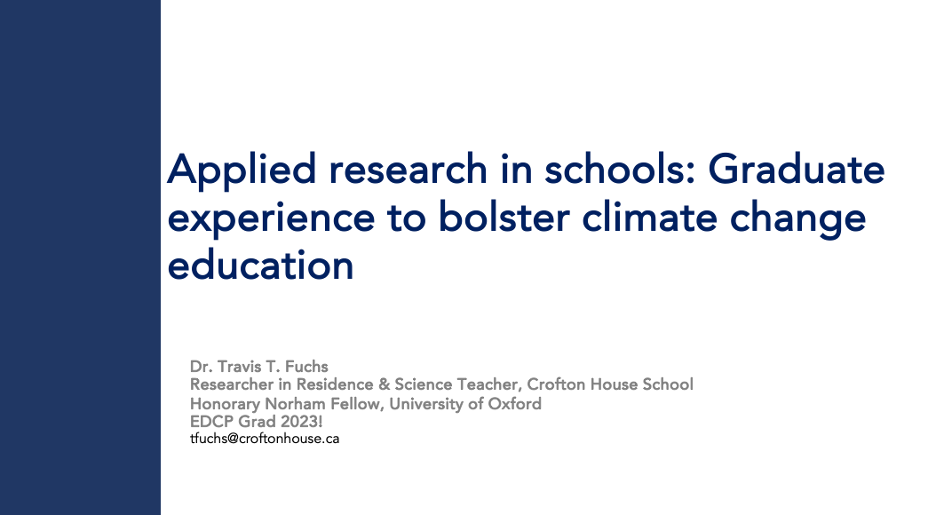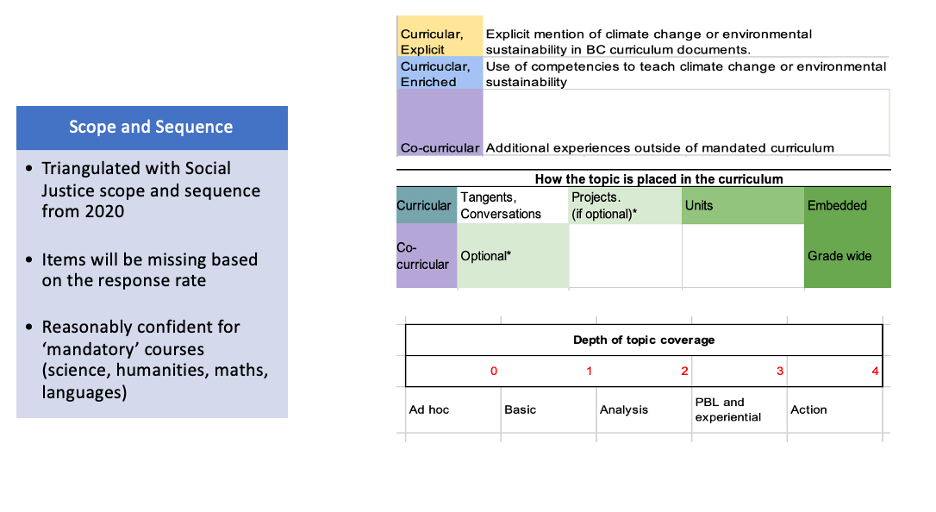Summary of SyMETRI Meeting: May 27th, 2024 by Stéphanie La France
Presenter/Guest Speaker: Dr. Travis Fuchs, Researcher in Residence and Science Teacher at Crofton House School and an Honorary Norham Fellow at the University of Oxford
Date: May 27th, 2024
Host: Dr. Cynthia Nicol
At the SyMETRI meeting on May 27th, 2024, Travis Fuchs shared his research on Climate Education (CE) and how he continues to engage with this work in his teaching and mentoring practice. Travis shared that recognizing climate change as an issue of our time, and more notably, acknowledging its critical effects and impacts, was the first step to the development of climate change education. He further noted that school policy and curricular standards reflect the acknowledged importance of sustainability, stewardship, and climate education which center around being good care takers—something that the xʷməθkʷəy̓əm (Musqueam) and Indigenous peoples of Canada have always done and continue to do.
CE and active stewardship emerge within practice in different ways. Travis investigated student perspectives, teachers’ perspectives, and climate education in practice to determine the state of climate education in BC, and specifically, at his school. He found that senior students perceived the climate crisis with complacence, apathy, frustration, and motivation. They wanted to see action but believed it to be unattainable. In comparison, junior students regarded the climate crisis with worry, sadness, guilt, motivation, and hope. When they see action, they feel positive, but they believe that not enough is being done at the school. In practice, he found that nearly 50% of teachers are engaging in climate education activities; however (and surprisingly), of the various subjects, science teachers engaged the least.
Given his research into the implementation of climate change activities in practice, Travis further explored possible reasons why teachers may not be engaging with CE. He found that when CE was in action, it was done well but that generally, it was not engaged with enough. He found that teachers felt ill-prepared and lacked self-efficacy in implementing CE principles despite their alignment with curriculum. This has led him to wonder: How do we become more prepared? Travis inspired us all to contemplate how we might further support pre-service and in-practice teachers so that CE becomes more prevalent in schools. He shared the following resources with us:
Government of Canada: Toward a National Framework for Environmental Learning: Discussion Paper
Student-led campaign: Reform to Transform
Here are some photos of Travis’ presentation:
Travis T. Fuchs received his PhD in Curriculum Studies from the Faculty of Education at UBC. He is Researcher in Residence and Science Teacher at Crofton House School and an Honorary Norham Fellow at the University of Oxford. His current projects include teachers’ engagement in and with research as forms of professional development, teacher climate change education, expanding teacher recruitment pipelines, and instructional approaches which leverage socioscientific issues in science learning contexts.


